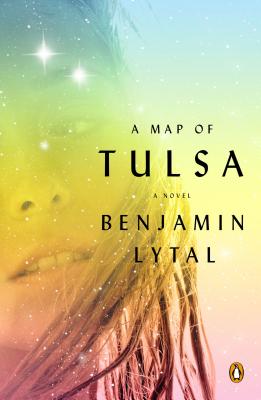 In Michael Chabon’s celebrated novel Wonder Boys, the protagonist, a novelist, asks his father-in-law how he likes his first book and gets this response: “‘It’s a young man’s book,’ he said, not unkindly. ‘It got me remembering how it felt to be young.’” That also makes a perfect description for Benjamin Lytal’s debut novel, A Map of Tulsa, released this week by Penguin. The novel tracks the romance between Jim Praley, a virginal young man home from his first year of college on the East Coast, and Adrienne Booker, a dropout, oil-fortune heiress, and multitalented artist in Tulsa who comes to stand for the ideals and aspirations of youth.
In Michael Chabon’s celebrated novel Wonder Boys, the protagonist, a novelist, asks his father-in-law how he likes his first book and gets this response: “‘It’s a young man’s book,’ he said, not unkindly. ‘It got me remembering how it felt to be young.’” That also makes a perfect description for Benjamin Lytal’s debut novel, A Map of Tulsa, released this week by Penguin. The novel tracks the romance between Jim Praley, a virginal young man home from his first year of college on the East Coast, and Adrienne Booker, a dropout, oil-fortune heiress, and multitalented artist in Tulsa who comes to stand for the ideals and aspirations of youth.
With Adrienne, Jim, a would-be poet, finds and then exudes some archetypically youthful attitudes: a sense of glorious adventure, a wildness that seems to him original and meaningful, an unqualified confidence that everyone else finds his actions enviably bold and interesting. He becomes intoxicated with life and love and freedom, giving him a wonderful, if unfounded, sense of power and infallibility, the kind that could lead a young man to shoot a pistol out a window without worrying where the bullets land, or declare that he owns the subway car he rides to work. Jim does both.
And it’s not just the character of Jim who displays these attitudes; the first-person narrator, a somewhat older Jim, does too. After Adrienne is involved in a tragedy, Jim looks back at those years with nostalgia and veneration, using retrospection mostly to romanticize his memories with Adrienne rather than to question or complicate them. At times the attitude is reminiscent of Jack Kerouac’s spirited novels, though Kerouac’s narrators offer less interpretation, keeping a tone of distance and neutrality about their past ecstasies, whereas Lytal’s narrator spends more time insisting on the beauty and exuberance of his youth. His sentences are brooding, abstract, often adorned with unconventional phrasings and impressive vocabulary: “She wanted to be the opposite of a meritocracy: born wealthy, mostly unfriendly, but agog with unearned talents.” At times this writing style can be distancing, but it’s wholly appropriate—this is exactly the kind of language a young writer would consider poetic.
That is the ultimate accomplishment of A Map of Tulsa, a vision of youth from the inside, undiluted by the wider perspectives of later years.
Links and Resources:
- Follow Benjamin Lytal on Twitter or visit his website.
- You can also check out a recent post by Lytal on geography and fact-checking in fiction, which appeared earlier this week on the Paris Review blog.





